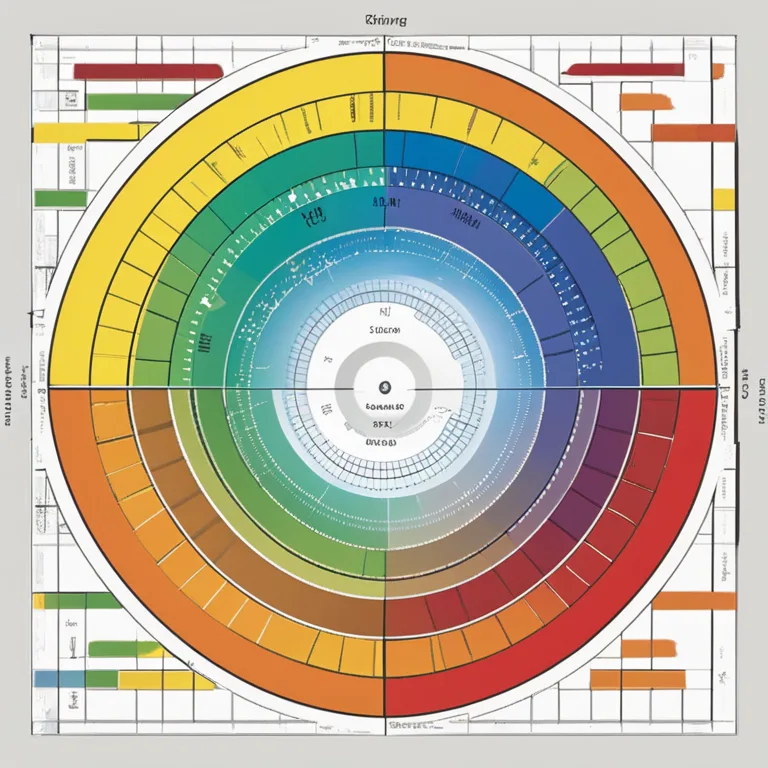
The Rhythms Within: Your Biorhythm Biological Clock
Delve into the concept of biorhythms to understand the cyclic patterns influencing your physical, emotional, and intellectual states. Discover how your biological clock can affect your daily life.
article by Adrian Wallace
Introduction to Biorhythms
Do our bodies follow natural cycles that affect how we think, feel, and perform? Biorhythms theory suggests that we do. According to this concept, from the moment of birth, humans experience rhythmic cycles that influence our physiological and mental states. These cycles are believed to predict various aspects of an individual's life, potentially providing insights that can lead to a harmonious existence. Biorhythms comprise three fundamental cycles: the physical, emotional, and intellectual cycles, each with its own regular pattern. Understanding these patterns might help in planning tasks, making decisions, and improving overall well-being.

The Physical Cycle
The physical biorhythm operates on a 23-day cycle and is thought to influence one's strength, endurance, and overall vitality. When this cycle is at its peak, individuals may feel at their physical best, ready to tackle demanding activities. Conversely, during the low phase of this cycle, one might feel fatigued and less inclined to physical exertion. Proponents suggest that by monitoring this cycle, people can optimize their workout routines, improve performance in sports, and reduce the risk of injuries by avoiding strenuous activities during the low phases.

The Emotional Cycle
Spanning a 28-day period, the emotional biorhythm cycle allegedly governs mood, creativity, and affectivity. High points in this cycle may coincide with feelings of optimism and high emotional energy, whereas the low points could bring about emotional instability or a sense of detachment. By being mindful of this cycle, individuals could potentially enhance their social interactions, creative endeavors, and emotional health by aligning important events or decisions with the cycle's high phases.

The Intellectual Cycle
The intellectual biorhythm lasts 33 days and reportedly affects mental functions such as analytical thinking, memory, communication, and logic. Peak intellectual days might be ideal for problem-solving, learning new skills, or making significant decisions. On the flip side, the cycle's low periods might not be the most opportune times for tasks that require sharp cognitive proficiency. By understanding this cycle, one might better schedule activities that demand intense mental effort or plan for a mental rest.

Biorhythm Compatibility
The theory of biorhythms extends beyond individual cycles; it also encompasses interpersonal dynamics. Compatibility assessments based on biorhythms claim to determine how well individuals' cycles synchronize with one another. This analysis might be used in personal and professional relationships to enhance communication, understanding, and team performance. While not scientifically proven, these assessments fascinate many and continue to be a topic of interest in the realms of personal development and social psychology.
Biorhythms in the Modern World
Despite skepticism from the scientific community, biorhythms have found their niche in today's world. An increasing number of apps and online tools offer to track these cycles, providing visual representations and personalized advice. This modern twist on an old theory exemplifies our continuous quest to understand the forces shaping our lives. It seems that in 2024 and beyond, fascination with personal rhythms and cycles will continue to thrive, blending ancient practices with cutting-edge technology.
Conclusion
While the concept of biorhythms may not have empirical backing, it sparks curiosity and introspection. Whether you consider biorhythms a precise science or a tool for self-reflection, there's no denying the allure of uncovering patterns within ourselves. In an age where optimization is key, the practice of aligning with our biological rhythms could be seen as another avenue to enhance the quality of our lives. Ultimately, the true value lies in understanding ourselves better, and perhaps, in that objective alone, biorhythms offer a noteworthy contribution.
Published: 12/28/2023
Modified: 12/28/2023
More predictions
Come back here soon to learn more about yourself and your future


The Concept of Biorhythm Compatibility
Discover the concept of biorhythm compatibility and its role in personal relationships in this comprehensive guide.


The Core of Biorhythm Theory
Delve into the core of biorhythm theory, a concept that suggests our daily lives are influenced by natural physiological cycles.


Biorhythm: The Significance of Compatibility
Discover the significance of biorhythm compatibility in relationships and how syncing life cycles can impact partnership dynamics.